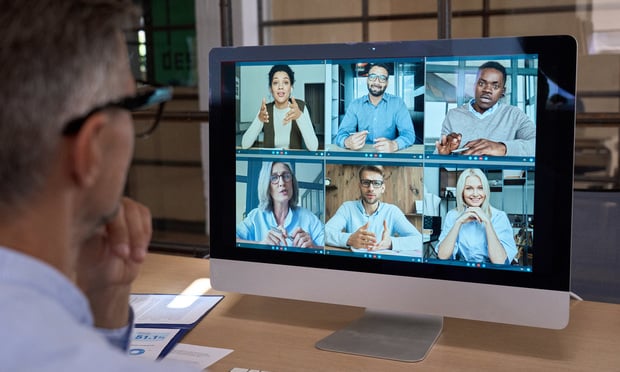WOULDN'T it be wonderful to know what the future holds? If we knew what would happen tomorrow, we could plan accordingly, avoid danger and make the most of every opportunity. Unfortunately, I can't predict the future, but I can offer some suggestions for pre-paring for the changes that are inevitable and using them to your advantage.
To sense and respond to future developments as effectively as possible, you need to understand paradigms. A paradigm is a structure or pattern, a way of doing things and a model for problem-solving. Scientific historian Thomas Kuhn introduced this concept in his book "The Structure of Scientific Revolutions," and futurist Joel A. Barker later popularized it in his books and training videos. Barker explains that we have paradigms for almost all aspects of our lives-personal, professional, spiritual and social. According to Kuhn and Barker, people unconsciously create powerful filters through which they sort information. Data that conforms to established paradigms passes easily through the filters, but data that doesn't is difficult to perceive, if it's seen at all. In other words, human beings tend to see what they expect to see. Because each person sees the world through a different filter, what is obvious to one person may be imperceptible to another.
Baker considers paradigms useful because they help us identify what is-and is not-important, focus our attention and give us valuable guidance for problem-solving. He cautions, though, against allowing your paradigm to become the paradigm-the only way to do something-and rejecting alternative ideas out of hand. Barker also notes that people who create new paradigms often are outsiders. Since they are not part of the established community, they have nothing to lose by introducing something new. Finally, he observes that it takes great courage for practitioners of an old paradigm to shrug it off and adopt a new one. Pioneers must trust their intuition and exercise good judgment.
A paradigm shift substitutes a new set of rules for an old one and moves everyone back to zero. One of the greatest paradigms shifts in the insurance industry resulted from developments in communication technology. Cell phones, the Internet, e-mail, computer faxing, Web conferencing, document scanning and online account access have dramatically improved agency operations and producers' ability to prospect, write new business and service clients. Agencies and companies that have embraced such capabilities typically have outpaced those that have resisted them.
Our paradigms can make dealing with change and anticipating the future difficult and can prevent us from solving problems or recognizing breakthroughs. History provides us with several notable examples of remarkable opportunities missed be
cause someone rejected a new concept that conflicted with old ways of thinking. For instance, in the late 1930s, inventor Chester Carlton worked for the Kodak Co. In his spare time, he created a device that produced photographic images using a bright light, a specially coated metal plate and fine black powder instead of wet chemicals. Carlton's boss in the company's research department, however, was not interested in Carlton's electrostatic photography and urged the young man to turn his attention back to the work already under way. Undaunted, Carlton continued to demonstrate his invention to other photographic companies until a new one, Xerox, recognized the potential of the process and bought the rights to it. In 1948 Xerox introduced the American public to the first photocopier.
Another classic example of paradigm paralysis is illustrated by Swiss watch-makers, who for more than a century were renowned for their unrivaled excellence in hand-crafting exquisite timepieces. In 1968, they enjoyed 65% of the world's market share and more than 80% of its profits from watch manufacturing and sales. Then a handful of Swiss researchers invented a revolutionary new product: the quartz-movement watch. It was completely electronic, battery-operated and far more accurate than traditional mechanical watches. But since the prototype featured none of the mechanical complexities that were trademarks of Swiss craftsmanship, Swiss manufacturers didn't believe it represented the future of time-keeping. They rejected the design and neglected to protect it. Later, when the researchers displayed their new quartz watch at the World Watch Conference, representatives from Seiko of Japan snapped it up and soon flooded the market with cheap digital watches. Consumers apparently wanted an inexpensive way to tell time more than they wanted a hand-crafted heirloom. In just 10 years, Swiss watch manufacturers' market share fell to below 10%, and 50,000 Swiss watch-makers lost their jobs.
How can we keep paradigm paralysis from impeding our progress? First, look for the warning signs. Some common reasons/excuses for resisting change include "It will never work," "We can't afford it," "We're not quite ready for that," "Let's wait and see how it works for others," "We already tried that and it didn't work," "It would take too much time/effort," "We're too small to do that," "We're doing just fine," and "I'm retiring soon. Let the young folks figure it out after I leave."
Don't let such beliefs and doubts prevent you from making the changes necessary for you to succeed. Instead, ask yourself what you could do today that would fundamentally change your agency for the better. Ask your office staff to brainstorm with you. Encourage a wide variety of ideas and methods for turning them into reality. Think about what could send you back to zero-a new regulation, a change in your company's policy, a new tactic by your competitor, some other hypothetical event. Try to identify possible threats to your agency's success and methods for preventing or mitigating them. Decide where you'd like to be in 10 years, plan backwards to the present, then set that plan in motion, allowing some wiggle room for unexpected changes. Since the best ideas may not come from us because we are so fixed in our insurance and automation paradigms, you might even organize a focus group consisting of clients, prospects and others outside the industry and solicit their suggestions for improving communication, service or other facets of your business.
Don't be afraid to take risks; that's what makes great things happen. Think about such pioneers as Walt Disney, Fred Smith (chairman of FedEx), Howard Schultz (chairman of Starbucks Corp.) and Michael Dell (founder and chairman of Dell Computers). These entrepreneurs were also visionaries who chose not to play it safe or follow someone else's lead. They took chances and achieved extraordinary success because their approach to ordinary things was revolutionary. They created new paradigms for their respective industries.
Do your homework and find out not just what's likely to work well for your agency but also what's being phased out. For example, if your office still has paper files, forget about T-filing-it's already becoming obsolete-and go directly to e-filing.
Also, keep in mind that some things never change, like the importance of relationships and integrity. Maintain the highest ethical and professional standards. Educate yourself and your staff. Be accessible to clients. Keep an open mind. Anticipate your clients' needs and think of ways to fulfill them. Embrace technology. Have the courage to change with the times, but do so with careful forethought. If you follow these guidelines, I predict a bright future for you and your agency.
(This article is derived from a presentation given at the Applied Systems Client Network 19th Annual Technology, Education and Networking Conference, which as held in October in Orlando, Fla.)
Want to continue reading?
Become a Free PropertyCasualty360 Digital Reader
Your access to unlimited PropertyCasualty360 content isn’t changing.
Once you are an ALM digital member, you’ll receive:
- Breaking insurance news and analysis, on-site and via our newsletters and custom alerts
- Weekly Insurance Speak podcast featuring exclusive interviews with industry leaders
- Educational webcasts, white papers, and ebooks from industry thought leaders
- Critical converage of the employee benefits and financial advisory markets on our other ALM sites, BenefitsPRO and ThinkAdvisor
Already have an account? Sign In Now
© 2024 ALM Global, LLC, All Rights Reserved. Request academic re-use from www.copyright.com. All other uses, submit a request to [email protected]. For more information visit Asset & Logo Licensing.








